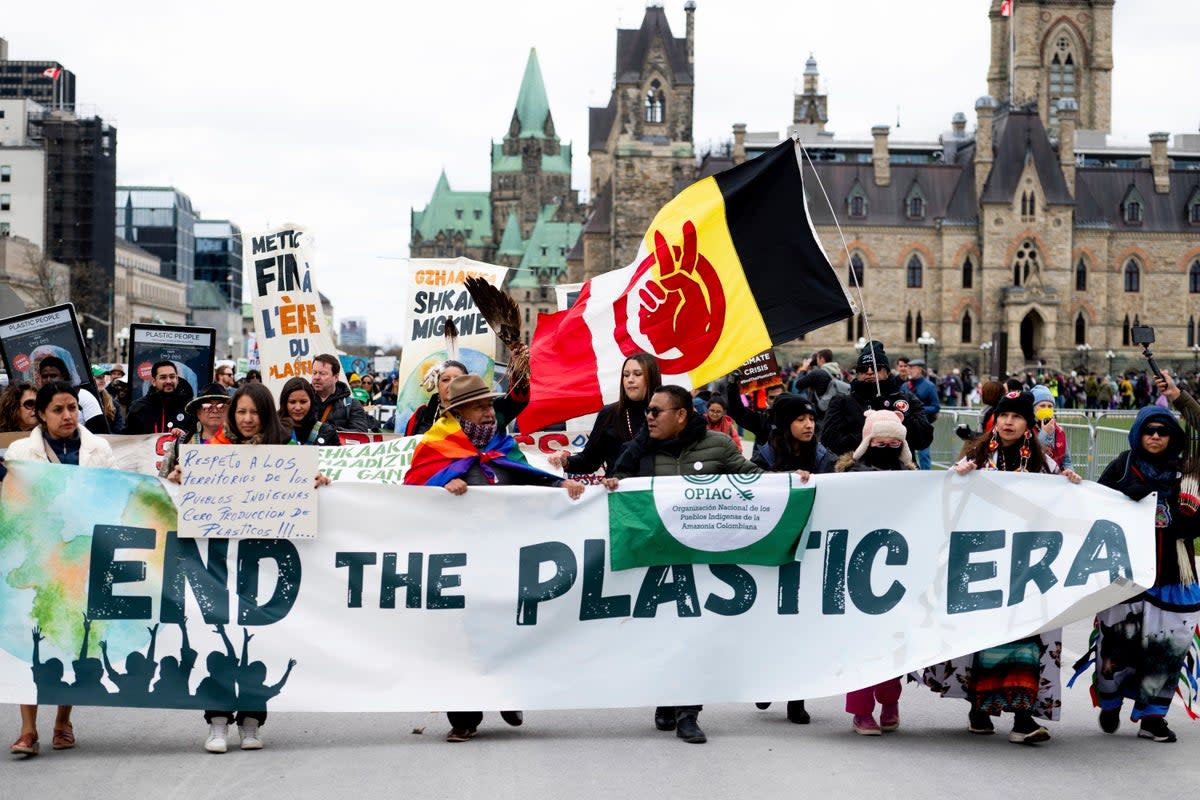Big Oil lobbyists swarm UN talks on global plastic pollution treaty

The world is on the verge of agreeing an agreement to combat plastic pollution but the final negotiations are being flooded by fossil fuel and chemical industry lobbyists who could derail them, a rights group has warned.
The fourth round of talks to determine the shape and form of the landmark treaty are taking place in Ottawa, Canada.
The proposed treaty aims to address the entire lifecycle of plastic, from production to disposal or reuse.
However, it is facing challenges from mainly fossil fuels and petrochemical sectors that are wary of stringent production caps and phaseouts. With just one round of negotiations remaining to finalise a binding treaty by the end of the year, the stakes are high.
Over 4,000 people have registered to attend the talks. But nearly 200 of them are fossil fuel and chemical industry lobbyists, according to an analysis by the Center for International Environmental Law (CIEL). This means the number of lobbyists is higher than that of many national delegations, the nonprofit noted.
The European Union, for example, has a combined 180 representatives at the ongoing talks, while the group of Pacific Small Island Developing States, which are bearing the brunt of the climate crisis and pollution, have only 73 representatives.
There are also three times as many Big Oil lobbyists as scientists from the Scientists’ Coalition for An Effective Plastic Treaty – 58 – and seven times as many as representatives of the Indigenous Peoples Caucus – 28.
The presence of fossil fuel lobbyists at critical international negotiations has been an issue in UN’s climate talks as well. At the Cop28 summit last year, a record 2,456 people associated with Big Oil were present, prompting outrage from experts and activists.
Hitting back at the CIEL analysis, the International Council of Chemical Associations, which is comprised of members of plastics, petrochemical and chemical manufacturing industries, said their presence was smaller when compared to civil society participation.
“While we are far outnumbered by the 2,202 total members of the NGO community, including 166 delegates from larger, international NGOs ... we value the emphasis on stakeholder participation to help achieve our shared goal of ending plastic pollution,” the group said in a statement on Thursday.
Delphine Levi Alvares, global petrochemical campaign coordinator at CIEL, said the lobbyists from Big Oil enjoy far more access at the talks than civil society.
“Some may argue that everyone enjoys equal access, but that is simply not true,” she said. “Lobbyists are appearing on country delegations and are gaining privileged access to Member State-only sessions, where sensitive discussions unfold behind closed doors.”
Global plastic production doubled between 2000 and 2019, despite plastic pollution becoming lethal at every level.
Plastic waste has been found in the deepest levels of oceans and recent studies show microplastics are present in everything from a bottle of water to meat and vegetables from which they can enter our bloodstream.
Climate and environment campaigners have been calling for a stringent global treaty to control the pollution from its production to the end.
“The outcome of these talks is of critical importance to countries and communities around the world, and it is vital to expose and confront the role of corporations whose agendas are fundamentally in conflict with the global public interest,” Ms Alvares said.


